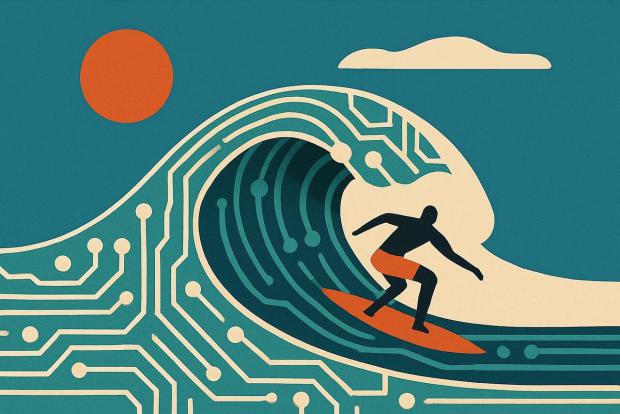
Breaking News
 "TEST Her First!" - Do This BEFORE You Get Married | Charlie Kirk
"TEST Her First!" - Do This BEFORE You Get Married | Charlie Kirk
 AI, Inevitability, & Human Sovereignty
AI, Inevitability, & Human Sovereignty
 Researchers Found Unvaccinated Children Healthier Than Vaccinated, Didn't Publish Findings
Researchers Found Unvaccinated Children Healthier Than Vaccinated, Didn't Publish Findings
 The Five Most Likely Outcomes From The Russian Drone Incursion Into Poland
The Five Most Likely Outcomes From The Russian Drone Incursion Into Poland
Top Tech News
 Tesla Megapack Keynote LIVE - TESLA is Making Transformers !!
Tesla Megapack Keynote LIVE - TESLA is Making Transformers !!
 Methylene chloride (CH2Cl?) and acetone (C?H?O) create a powerful paint remover...
Methylene chloride (CH2Cl?) and acetone (C?H?O) create a powerful paint remover...
 Engineer Builds His Own X-Ray After Hospital Charges Him $69K
Engineer Builds His Own X-Ray After Hospital Charges Him $69K
 Researchers create 2D nanomaterials with up to nine metals for extreme conditions
Researchers create 2D nanomaterials with up to nine metals for extreme conditions
 The Evolution of Electric Motors: From Bulky to Lightweight, Efficient Powerhouses
The Evolution of Electric Motors: From Bulky to Lightweight, Efficient Powerhouses
 3D-Printing 'Glue Gun' Can Repair Bone Fractures During Surgery Filling-in the Gaps Around..
3D-Printing 'Glue Gun' Can Repair Bone Fractures During Surgery Filling-in the Gaps Around..
 Kevlar-like EV battery material dissolves after use to recycle itself
Kevlar-like EV battery material dissolves after use to recycle itself
 Laser connects plane and satellite in breakthrough air-to-space link
Laser connects plane and satellite in breakthrough air-to-space link
 Lucid Motors' World-Leading Electric Powertrain Breakdown with Emad Dlala and Eric Bach
Lucid Motors' World-Leading Electric Powertrain Breakdown with Emad Dlala and Eric Bach
 Murder, UFOs & Antigravity Tech -- What's Really Happening at Huntsville, Alabama's Space Po
Murder, UFOs & Antigravity Tech -- What's Really Happening at Huntsville, Alabama's Space Po
AI, Inevitability, & Human Sovereignty

These tools promise to make us smarter while systematically making us more dependent.
After decades of working in the internet industry, I'd already watched it transform into something more insidious than just a surveillance machine - a system designed to shape how we think, what we believe, and how we see ourselves. AI felt like the culmination of that trajectory.
But resistance became futile when I realized we're already participating whether we know it or not. We're already interacting with AI when we call customer service, use Google Search, or rely on basic smartphone features. A few months ago I finally capitulated and started using these tools because I could see how quickly they were proliferating - becoming as unavoidable as the internet or smartphones.
Look, I'm not just an old man resistant to change. I understand that every generation faces technological shifts that reshapes how we live. The printing press disrupted how knowledge spread. The telegraph collapsed barriers of distance. The automobile transformed how communities formed.
But the AI revolution feels different in both pace and scope. To understand how dramatically the rate of technological change has accelerated, consider this: anyone under 35 likely doesn't remember life before the internet transformed how we access information. Anyone under 20 has never known a world without smartphones. Now we're witnessing a third epoch with AI tools proliferating faster than either previous shift.
More fundamentally, AI represents something qualitatively different from previous technological disruptions - a convergence that touches labor, cognition, and potentially consciousness itself. Understanding how these domains interconnect is essential for preserving personal agency in an age of algorithmic mediation.
My primary fear about AI isn't just the dramatic scenario where it becomes hostile, but the subtler threat: that it will make us subordinate to systems in ways we don't recognize until it's too late, weakening the very capacities it promises to strengthen.
What we're witnessing isn't just technological advancement - it's what Ivan Illich called iatrogenic dependency in his seminal work, Medical Nemesis. Illich coined this term for medicine - institutions that promise to heal while creating new forms of illness - but the pattern applies perfectly to AI as well. That's exactly what I'd been sensing about these new tools - it promises to enhance our cognitive abilities while systematically weakening them. It's not the hostile takeover science fiction warned us about. It's the quiet erosion of individual capacity disguised as help.
This iatrogenic pattern became clear through direct experience. Once I started playing around with AI myself, I began to notice how subtly it attempts to reshape thinking - not just providing answers, but gradually training users to reach for algorithmic assistance before attempting independent reasoning.



